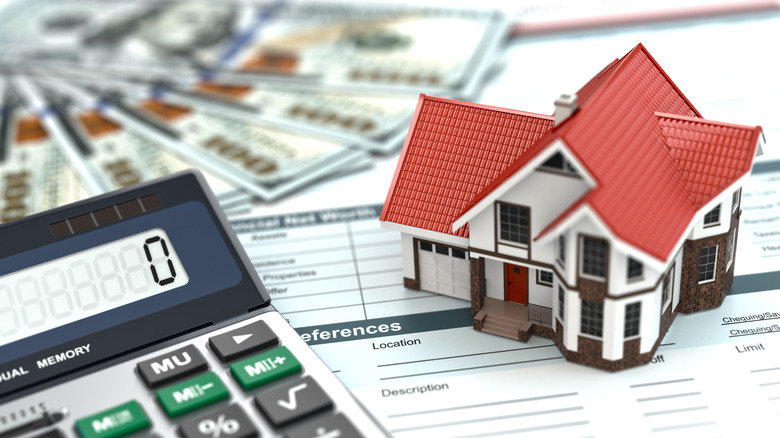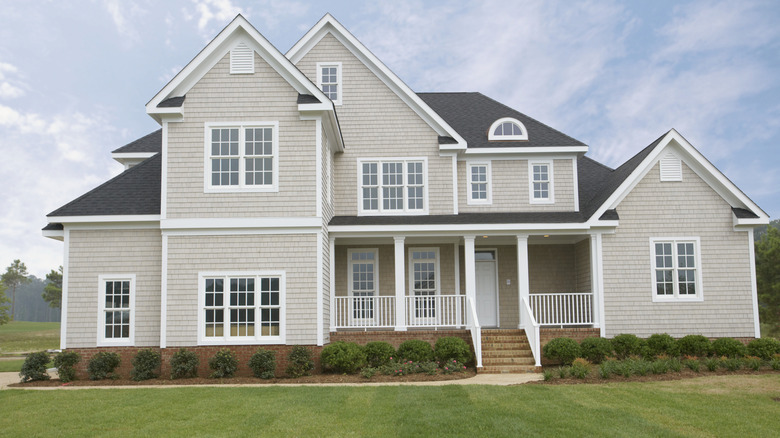In 10 Years, Boomers Won't Be Able To Afford To Live In These US States
As the silver tsunami continues, and more and more workers in the baby boomer generation hit their full retirement age, a larger percentage of the country's population will be over 65 than ever before. According to a report from the Administration for Community Living, 31.9 million people in the U.S. were 65 and over as of 2022. This not only represented 17.3% of the country's entire population that year, but the number of Americans that are expected to be 65 and over is anticipated to grow to 22% of the U.S. population by 2040. Another statistic to keep in mind is that the number of older Americans has increased by a whopping 34% since 2012, which far outweighs the 2% population increase for those under 65.
All of this is to say that the country will have more older people living on fixed incomes than it has had in its history. This will not only complicate programs like Social Security, which is already on track to run out of its trust funds beginning in 2033, but also add further pressure on the country's growing housing crisis. The lack of affordable housing that is already plaguing many Americans is on track to be especially detrimental for the country's older population. Since most retirees live on fixed income from any combination of 401(k)s, Roth IRAs, Social Security, or other savings, they have less flexibility to handle increasing prices. While this issue is countrywide, there are certain geographic areas that can be even worse.
States with the highest taxes
One of the top things that baby boomers might find themselves struggling to pay for in a decade is their property taxes. While boomers might like their community or neighborhood, staying in a region or state with a high tax burden can be an especially problematic financial decision. As boomers retire and have fixed incomes, increases in things like property taxes can have a much more significant impact on their monthly expenses. According to data analyzed by Rocket Mortgage, as of 2022 data, the top states with the highest property taxes are New Jersey (2.23%), Illinois (2.08%), New Hampshire (1.93%), Vermont (1.83%), and Connecticut (1.79%).
However, it's worth mentioning that individual counties can have different property taxes depending on the home values in that area. For instance, residents of large cities like New York, San Francisco, Chicago, or Miami can expect to pay two to three times more in property tax than the rest of their state's average. According to the Tax Foundation, the 15 counties in the U.S. with the highest median property taxes in 2024 all pay well over $10,000 in property tax every year. Unsurprisingly, all but two of these counties are in New Jersey or New York state. New Jersey counties include Bergen, Essex, Hunterdon, Morris, Passaic, Somerset, and Union, while New York counties include Nassau, New York, Putnam, Rockland, Suffolk, and Westchester. Of the remaining two most expensive counties, Marin County in California and Falls Church City in Virginia complete the list.
Other considerations
Despite the financial implications of higher taxes, it is worth mentioning just how many older Americans are staying put. According to a 2024 Refin survey, 78% of older homeowners reported planning to stay in their current home as they age rather than selling/downsizing. In fact, the sheer amount of baby boomers staying put is actually further contributing to the larger housing crisis as their decision essentially ensures their larger family homes fail to hit the market for younger families. In fact, according to another 2024 Refin analysis, boomers currently own twice as many of the three-bedroom (or larger) homes in the U.S. than millennial families with children do. Another way of looking at this is that boomers take up at least 20% of all large homes across every location in the U.S.
However, some boomers are actually finding themselves unable, financially, to downsize or move into smaller properties. With interest rates still high (even a 1% difference in your mortgage rate can make a big financial impact) and housing prices increasing (home prices were up 5.5% as of November 2024 compared to last year) many boomers find their current home to be the only one they can afford. Redfin Senior Economist Sheharyar Bokhari explained, "Logically, empty nesters are the most likely group to sell big homes and downsize: They no longer have children living at home and don't need as much space. The problem for younger families who wish their parents' generation would list their big homes: Boomers don't have much motivation to sell, financially or otherwise."


